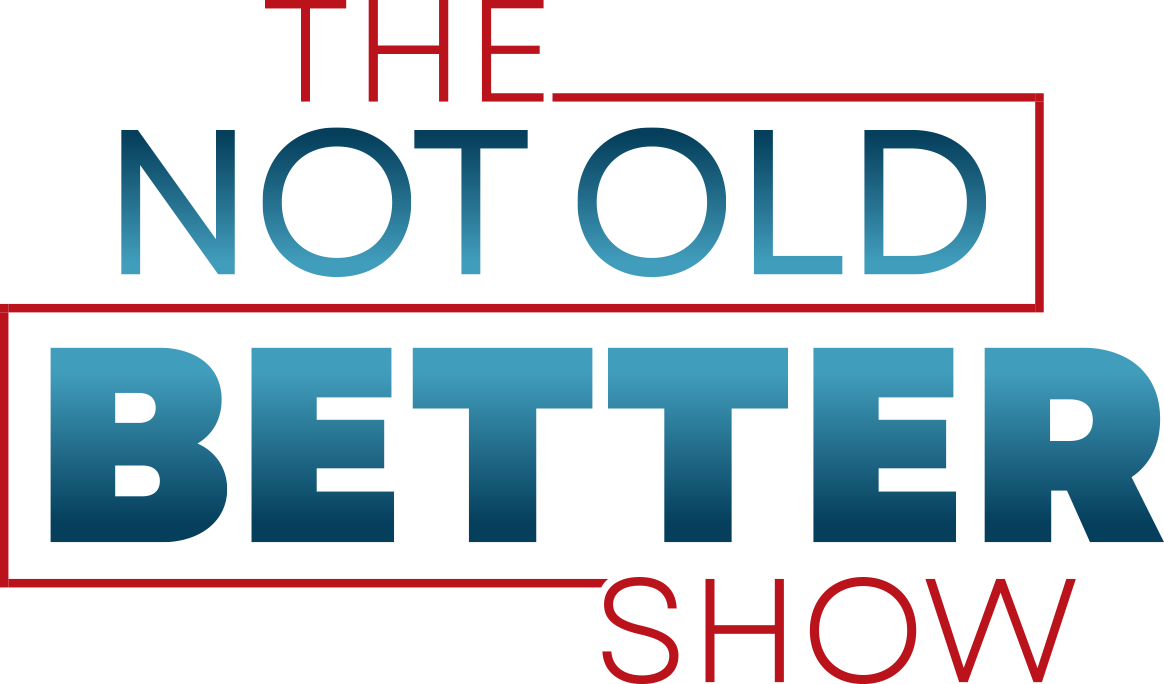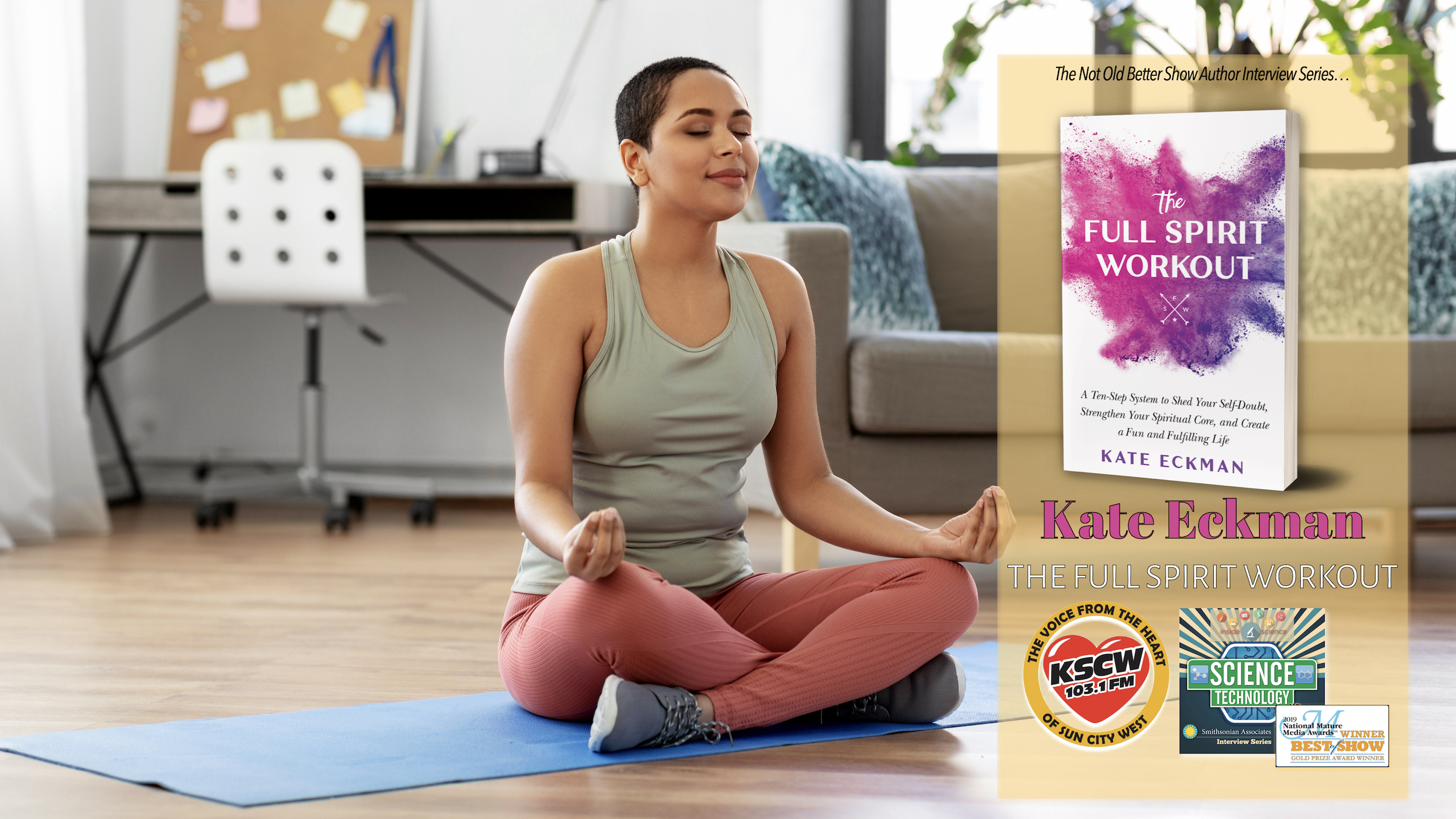Kate Eckman – The Full Spirit Workout
The Not Old Better Show Fitness Friday Author Interview Series
I’m Paul Vogelzang and our packed show today includes this week’s Healthy Headline about new research which confirms that early risers get a lot more than the worm, but they get relief from depression, too, along with today’s guest, Kate Eckman, who’s written the new book, The Full Spirit Workout about mental fitness for the mind.
So great to be with you today, and good morning and welcome to The Not Old Better Show on KSCW. I’m your host, Paul Vogelzang, and we’ve got a great show for you today on fitness, and a kind of fitness regimen for the mind.
Our guest today is author, Kate Eckman. Kate Eckman is an international TV presenter and model, motivational speaker, and author of Love Yourself, Love Your Life, and her book, The Full Spirit Workout, which is all about sharing inspirational stories about self-confidence, healthy aging, personal growth, beauty, and fitness.
Just as strong physical fitness and strong muscles help you live more effectively, strong mental muscles can give you the power to navigate your internal world, as well as the external world. Just as physical fitness involves a strong core, mental fitness will help you develop a strong inner core. And just as consistent reps of exercise get the body fit, the reps and exercises in Kate Eckman’s new book, The Full Spirit Workout, will help you shed any self-doubt that holds you back from achieving the fun, fulfilling life we desire and deserve as we get better, not older!
Kate Eckman earned a BA from Penn State University on a swimming scholarship and went on to earn her master’s degree in broadcast journalism from Northwestern University’s Medill School of Journalism. Kate Eckman worked as a TV news anchor and reporter for nearly a decade. Kate is also a meditation teacher and course creator for Insight Timer, the world’s number-one ranked free meditation app. I think from our interview today you’ll find, as I did, that Kate Eckman is a dynamic, high-energy and entertaining guest. Kate Eckman has the innate ability to not only capture our Not Old Better Show on KSCW’s audience attention—but also your hearts.
All this today on The Not Old Better Show on KSCW, but first our Healthy Headlines:
Waking just one hour earlier cuts depression risk by double digits
From the journal JAMA Psychiatry, and the University of Colorado, and Harvard, waking up just one hour earlier could reduce a person’s risk of major depression by 23%!
As people emerge, post-pandemic, from working and attending school remotely, —and being just generally isolated, a trend has begun leading many to shift to a later sleep schedule-according to Dr. V. Dr. V’s team of researchers found that even one hour earlier sleep timing is associated with a significantly lower risk of depression. Here’s Dr. V:
“We have known for some time that there is a relationship between sleep timing and mood, but a question we often hear from clinicians is: How much earlier do we need to shift people to see a benefit?” “We found that even one-hour earlier sleep timing is associated with significantly lower risk of depression.”
Previous studies have shown those night owls are as much as twice as likely to suffer from depression as early risers, regardless of how long they sleep.
In 2018, Dr. V published a large, long-term study of 32,000 nurses showing that “early risers” were up to 27% less likely to develop depression over the course of four years, but that begged the question: What does it mean to be an early riser?
Each one-hour earlier “sleep midpoint” which is the halfway point between bedtime and wake time, corresponding with a 23% lower risk of major depressive disorder. So, if someone who normally goes to bed at 1 a.m. goes to bed at midnight instead and sleeps the same duration, they could cut their risk by 23%; if they go to bed at 11 p.m., they could cut it by about 40%.
What could explain this effect?
Dr. V’s research suggests that getting greater light exposure during the day, which early-risers tend to get, results in a cascade of hormonal impacts that can influence mood.
Others note that having a biological clock, or circadian rhythm, that trends differently than most peoples’ can in itself be depressing.
“We live in a society that is designed for morning people, and evening people often feel as if they are in a constant state of misalignment with that societal clock,”
Dr. V stresses that a large randomized clinical trial is necessary to determine definitively whether going to bed early can reduce depression. “But this study definitely shifts the weight of evidence toward supporting a causal effect of sleep timing on depression.”
For all our listeners this morning, most of whom are early risers, is my bet, and who want to shift themselves to an earlier sleep schedule, Dr. V offers this advice:
“Keep your days bright and your nights dark,” “Have your morning coffee on the porch. Walk or ride your bike if you can, and dim those electronics in the evening.”
Personally, “I love sleep because it’s like a time machine to breakfast”
And now, please join me in welcoming to the Not Old Better Show on KSCW, author Kate Eckman.


